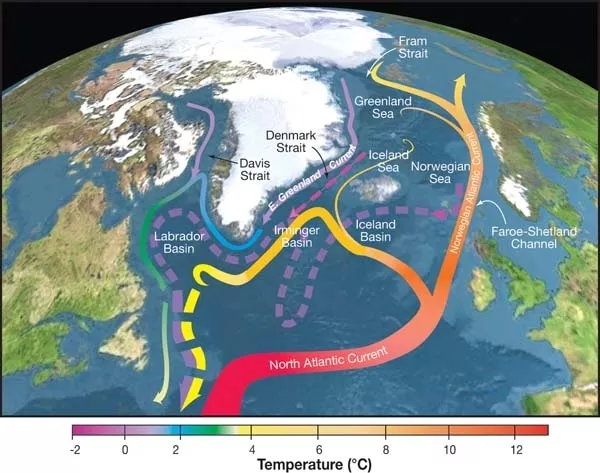Ocean currents speeding up
The world’s oceans seem to have been speeding up in recent decades.
A strong acceleration in the global mean ocean circulation over the past two decades has been described in detail in a paper recently published in Science Advances. This acceleration of global circulation extends into the deep oceans on a planetary scale.
Seventy-six percent of the top 2,000 metres of the ocean appears to have sped up since the 1990s, largely because of an increase in surface wind speeds. Wind forcing is the major source of the mechanical energy of the global ocean circulation, which redistributes the earth’s energy and water masses and influences global climate. Therefore, an accurate assessment of changes in ocean circulation is key to understanding global climate change.
Accelleration is substantial
The acceleration of global mean ocean circulation is substantial and statistically significant. Researchers found that between 1990 and 2013, the energy of these currents increased by 15 percent per decade. The acceleration is far larger than that associated with natural variability, suggesting that it is principally part of a long-term trend. The trend is particularly prominent in the global tropical oceans, reaching depths of thousands of metres.
Meanwhile, the Gulf Stream seems to be slowing, causing the North Atlantic to cool. But because this current—also known as Atlantic Meridional Overturning Circulation (AMOC)—is driven by cold water sinking and flowing southward, its slowing does not negate the possibility that winds could increase other currents.

Map of the Atlantic Meridional Overturning Circulation (AMOC)
- Log in to post comments



























